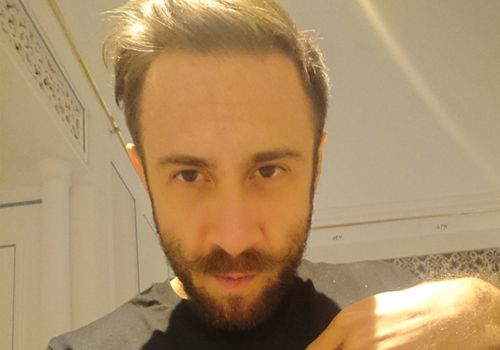A research study by The National Center for Women & Information Technology showed that “gender diversity has specific benefits in technology settings,” which could explain why tech companies have started to invest in initiatives that aim to boost the number of female applicants, recruit them in a more effective way, retain them for longer, and give them the opportunity to advance. But is it enough?
Four years ago, we launched a diversity series aimed at bringing the most inspirational and powerful women in the tech scene to your attention. Today, we’d like you to meet Akila Narain, Director, Technical Program Management at Meta.
Today’s Woman in Tech: Akila Narain, Director, Technical Program Management at Meta
 Akila Narain is a Director, Technical Program Management for Portal at Meta. As head of the Technical Program Management (TPM) function, Narain supports a team of TPMs who run the planning, execution and shipping of Meta Portal video calling devices.
Akila Narain is a Director, Technical Program Management for Portal at Meta. As head of the Technical Program Management (TPM) function, Narain supports a team of TPMs who run the planning, execution and shipping of Meta Portal video calling devices.
Prior to Meta, Narain was Manager, Fire OS TPM at Amazon where she was responsible for the TPM team that delivered Fire OS firmware for Amazon Echo, Fire TV and Fire Tablet products. She also held development and business consulting positions for a variety of top technology companies in Silicon Valley. Narain holds a Bachelor of Technology, Electronics and Communication Engineering from Pondicherry University, India.
When did you become interested in technology? What first got you interested in tech?
I started my career as an engineer coding for mainframes, but after about seven years, I pivoted into a sales role, pitching software as a service to Silicon Valley companies.
I wanted to get out from behind the scenes to be on the frontline, understanding the business better and building relationships. But when I went out on sales calls, I kind of felt like an uninvited guest who had to convince the people on the other side of the table why I was there and why they needed my product. It was a stark difference from being an engineer, where people — even company leaders — would seek me out for my opinion and expertise.
After about three years, I realized that my true passion was in bringing a concept to life and decided to switch back to engineering.
Education is crucial to changing how women are treated in the workplace.
Let’s talk about your background. How did you end up in your career path? What obstacles did you have to overcome?
While the tech industry in general, and Meta specifically, is more welcoming of women in leadership positions, women leaders still have to work extra hard to establish themselves and pull up other women. It takes intention and effort to ensure that women’s voices are heard.
Sometimes in meetings, a woman is trying to share her point of view, and unless there’s someone actually saying, “Hey, this person has had her hand up for a while. Can we give her a chance to speak?” she will not get to speak. I’ve been in that position many times. The good thing is I’ve had allies. I have also sought out allies and said, “Do you see what’s happening? Can you please stand up for me?” So there have been people around me that have advocated for me or had trust in the decisions I’ve made and have spoken up to support me.
Did you receive support from your family and friends? Do you have a role model?
I’ve been lucky to have had sponsors at various points in my career. These are people who are close to my work, can vouch for me, or throw my name in the hat for an opportunity especially when I’m not in the room.
My husband is a big source of support for me, a sounding board, and someone who pushes me to redefine my own self-drawn boundaries.
A day in Akila’s life
As head of Portal’s Technical Program Management (TPM) function, I support a team of Technical Program Managers who run the planning and execution of our Portal hardware devices from concept to launch. My team and I work across the entire organization, partnering closely with every team from Engineering, Product Design, and Research to Marketing, Retail, and PR to build and ship products to customers.
A typical workday includes reviewing product strategy and program plans to evaluate any potential roadblocks that could delay our timelines for new products or features we are building.
What are you most proud of in your career?
I’m incredibly proud to be part of the team that developed the Meta Portal, our family of video calling devices, and how many people it’s helped. At the onset of the pandemic, when countries around the world were locked down, we heard so many stories about how Portal helped them connect with loved ones.
There was the story of a husband who was not allowed into the delivery room to watch his wife deliver their baby so he sent her in with a Portal and was able to watch the birth of his child virtually. People used Portals to see their loved ones in care facilities during COVID lockdowns too. We have also heard about marriages and even weekday dinners all happening over Portal. There are so many heartwarming stories about real, authentic connections – it’s heartwarming for me.
Why aren’t there more women in tech? What’s your take on that?
There are multiple reasons — we need better awareness and support for girls to pursue STEM at the middle and high school levels, which would then create a bigger pipeline of candidates when they eventually graduate. There is a misconception that people need to know how to code, which often means women overlooking opportunities in tech. Lastly, sometimes women who have entered the tech industry don’t have sufficient sponsorship to thrive and grow in their careers.
Tech is nothing but a digital reflection of how we live and how we wish to live.
Could you name a few challenges (or obstacles) women in tech face?
Education is crucial to changing how women are treated in the workplace. Sometimes people may unintentionally ignore someone just because they’re not the loudest at the table. While the tech industry in general, and Meta specifically, is more welcoming of women in leadership positions, women leaders still have to work extra hard to establish themselves and pull up other women too. It takes intention and effort to ensure that everyone’s voice is heard equally.
I’m really grateful for the coaching programs that we have here at Meta with respect to managing inclusion and being an ally. Fortunately, I think people are turning a corner and seeing that biases exist and that we must collectively make a change.
The discussion about diversity is gaining momentum. How long will it take to see results from the current discussion?
My guess is that it’ll take 5-7 years to see meaningful results where representation is wide and empowered rather than being an after-thought.
What advice (and tips) would you give to women who want a tech career? What should they know about this industry?
Tech is nothing but a digital reflection of how we live and how we wish to live. In a social construct, women (mostly) shape how we live and interact in the physical world today, so we should believe that this persona and perspective is necessary in the digital world as well.
It’s no longer about who has the mastery of (computer) science but rather, who is bringing the perspective of the experience we seek to get in the digital world and more importantly in the metaverse to make it safe and authentic. And I strongly believe women have more than a significant role in that!!
More Women in Tech:
- Women in Tech: Naama Saar, COO at SQream Technologies
- Women in Tech: Lucy Nemes, Manager, Data & CX Strategy, Publicis Sapient
- Women in Tech: Dawn Glamm, senior vice president of engineering and operations, NS1
- Women in Tech: Alexandra Matthiesen, Vice President of Marketing, CodeSee
- Women in Tech: Elise Morse, Vibration Analyst at Augury
For even more Women in Tech, click here
The post Women in Tech: “We must collectively make a change” appeared first on JAXenter.
Source : JAXenter















